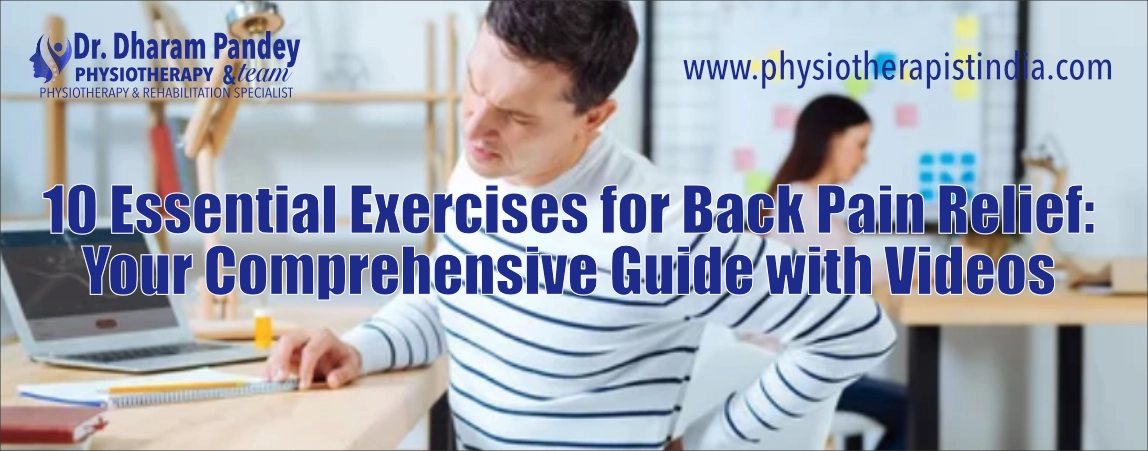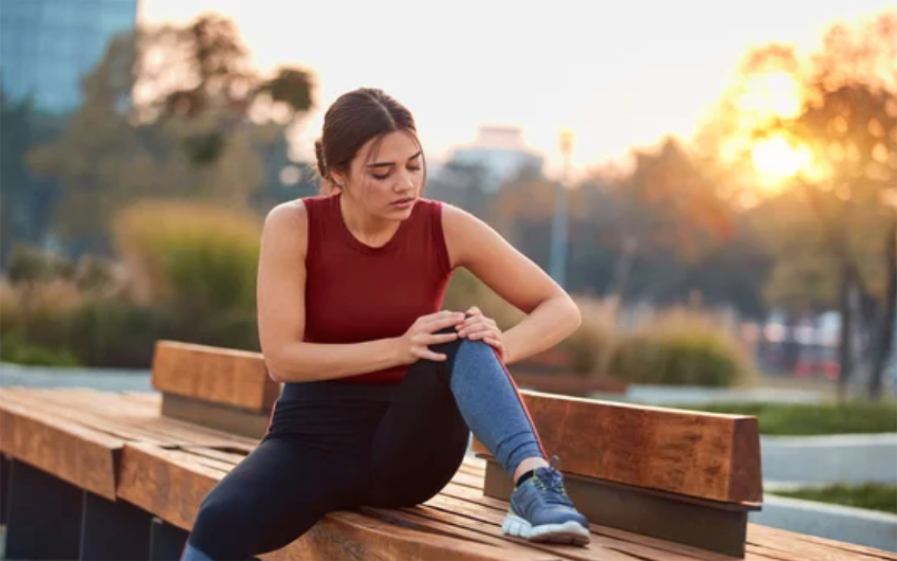Best Physiotherapy for Head Injury You Can Trust
Trust “Best Physiotherapy for Head Injury” for tailored rehabilitation, integrating evidence-based techniques to maximize recovery and restore independence. Our compassionate care and dedicated support aim to guide stroke survivors towards improved mobility and quality of life.
Best Head Injury physiotherapy Doctors in Delhi, India
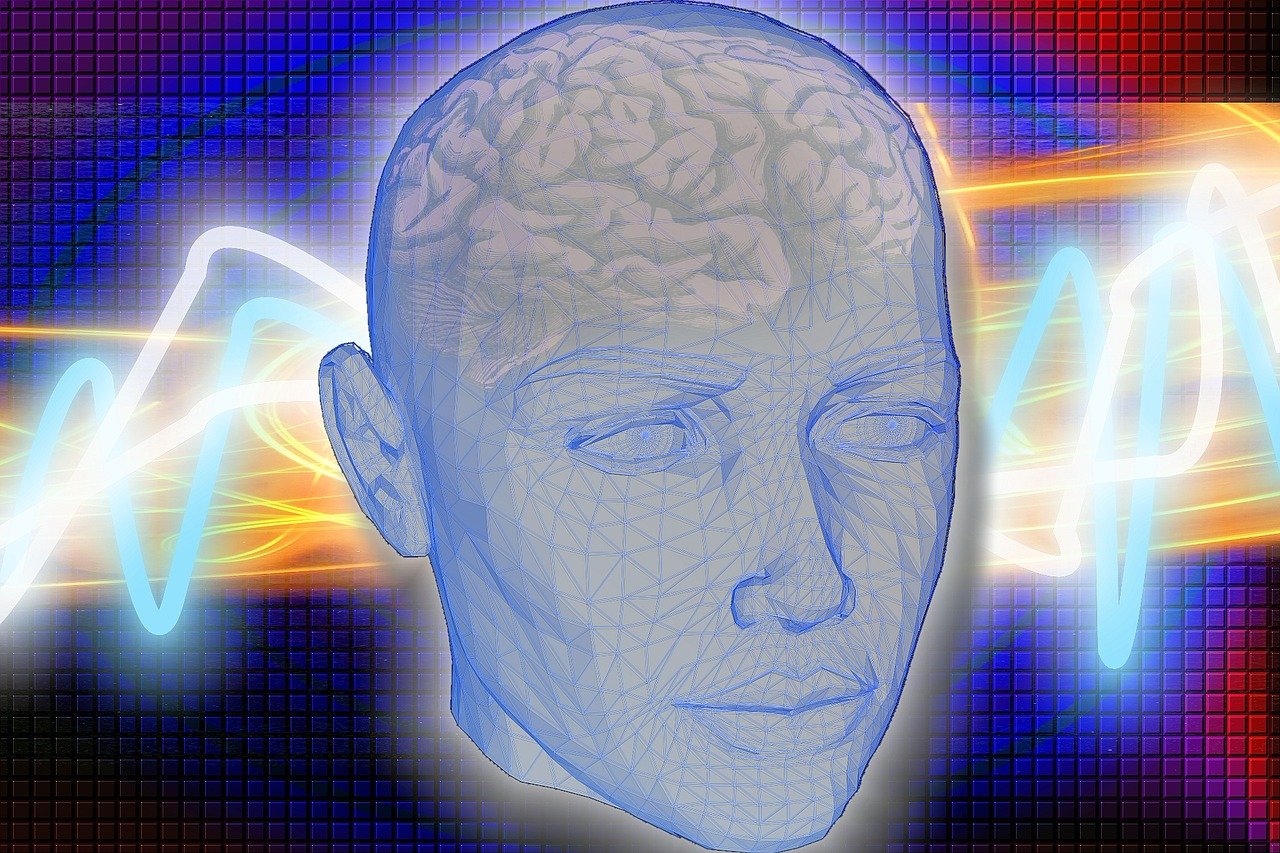
Physiotherapy for Head Injury
Head Injury Physiotherapy in Delhi
Head injuries, spanning from mild concussions to severe traumatic brain injuries (TBIs), stem from accidents or falls. Symptoms like headaches, dizziness, and memory problems vary in intensity. Treatment comprises rest, pain management, and occasionally surgery. Rehabilitation, integrating physical, occupational, and cognitive therapies, facilitates recovery and adaptation. Multidisciplinary care involving healthcare providers and caregiver support is vital. Continuous research propels advancements in treatment, fostering hope for individuals impacted by head injuries.
What is Head injury
A head injury encompasses trauma to the scalp, skull, or brain, ranging from mild concussions to severe traumatic brain injuries. Symptoms vary widely and may include headaches, dizziness, memory issues, and in severe cases, loss of consciousness. Treatment and rehabilitation aim to manage symptoms and promote recovery.
Head injuries can be classified into various types based on severity and mechanism of injury. These include concussions, skull fractures, intracranial hemorrhages such as epidural, subdural, or subarachnoid hemorrhages, and traumatic brain injuries (TBIs) ranging from mild to severe, each with distinct symptoms and treatment approaches.
CONCUSSIONS
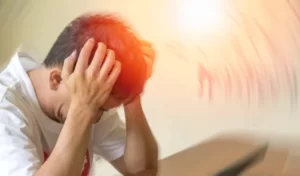
TRAUMATIC BRAIN INJURIES (TBIS)
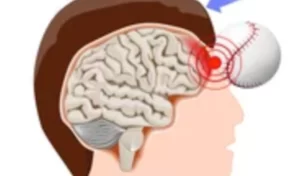
SKULL FRACTURES
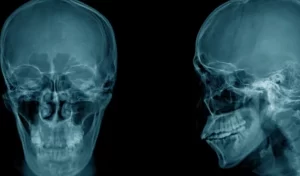
INTRACRANIAL HEMORRHAGES
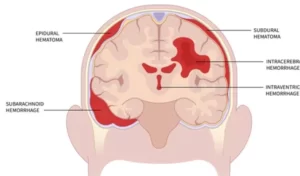
Prompt recognition of head injury symptoms is crucial for timely intervention and treatment, minimizing potential complications and optimizing outcomes for individuals affected by such injuries.
Recognizing the Symptoms of Head Injury
Head injury symptoms include headache, dizziness, nausea, memory problems, and loss of consciousness, indicating the need for immediate medical attention.
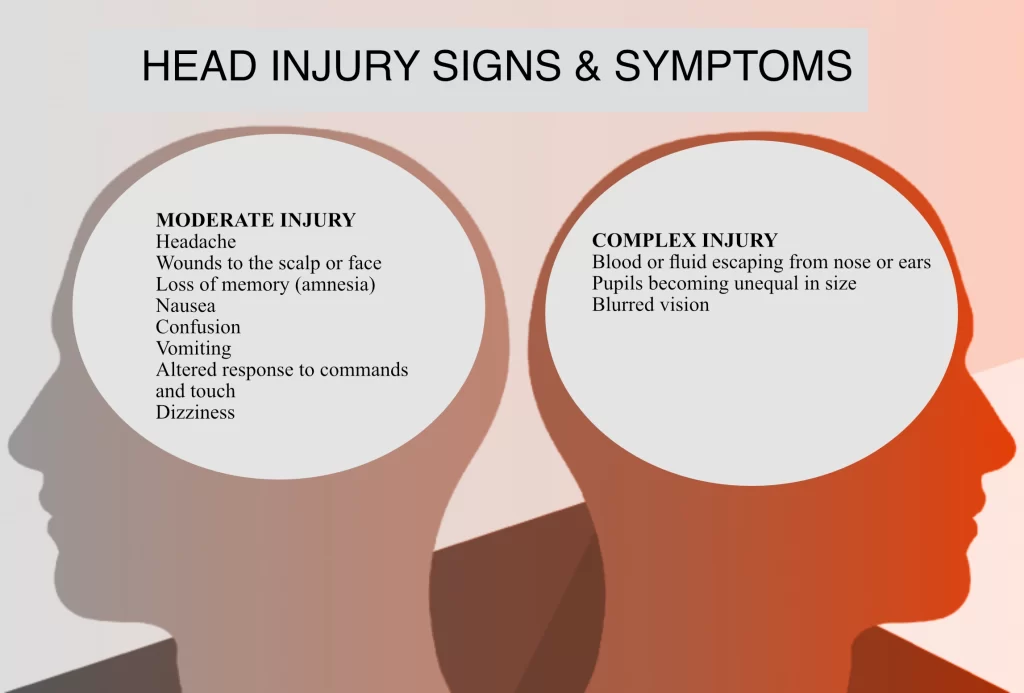
Treatment of HEAD INJURY
Treatment of head injuries involves rest, pain management, monitoring for complications, and in severe cases, surgery. Rehabilitation focuses on restoring function and adjusting to any lasting impairments.
Medical Intervention
Medical Intervention: Initial medical care involves stabilization to prevent further damage and imaging to assess the severity of the head injury.
Surgical Interventions
Surgical Intervention: If necessary, surgical procedures such as decompressive craniectomy or hematoma evacuation may be performed to alleviate pressure on the brain or repair damaged tissues.
REHABILITATION INTERVENTION
Rehabilitation Intervention: Following medical and surgical treatment, rehabilitation focuses on restoring lost function and improving independence through physical, occupational, and cognitive therapies.
Physiotherapy Treatment for Head Injury
Physiotherapy and rehabilitation post-head injury involve tailored exercise programs to improve mobility, strength, and coordination. Additionally, cognitive therapies help with memory, attention, and problem-solving skills.
These interventions aim to maximize independence and quality of life, facilitating the patient’s return to daily activities and social participation.
Technology is increasingly utilized in the Physiotherapy for head injuries, facilitating precise interventions, and virtual reality platforms for immersive rehabilitation programs.
When to Start Physiotherapy After Head Injury
Physiotherapy after a head injury typically begins once the patient is medically stable, often within days to weeks after injury, depending on severity. Early intervention focuses on gentle mobilization and symptom management, while more intensive therapy may commence as the individual progresses and tolerates increased activity.
Physiotherapy & Rehabilitation After Head Injury
What Includes in Physiotherapy and Rehabilitation after Head Injury
Rehabilitation following a head injury is a complex and multifaceted process that requires a comprehensive, multidisciplinary approach. Tailored to the unique needs of each individual, this rehabilitation aims to restore function, maximize independence, and promote overall well-being.
Technology plays an increasingly vital role in enhancing rehabilitation outcomes. In addition to traditional therapies, such as physical, occupational, and cognitive therapy, the integration of technology, including robotics and virtual reality (VR), offers innovative avenues for promoting recovery and improving functional outcomes.
Physiotherapy:
Physical therapists play a key role in helping individuals regain mobility, strength, balance, and coordination after a head injury. Through personalized exercise programs, gait training, and functional activities, physical therapy aims to improve physical function and reduce disability.
Occupational Therapy:
Occupational therapists focus on helping individuals relearn and master daily living skills necessary for independent functioning. This may include activities such as dressing, grooming, cooking, and household tasks. Occupational therapy also addresses the use of adaptive equipment and assistive devices to enhance independence.
Cognitive Therapy:
Cognitive deficits are common after a head injury, affecting memory, attention, concentration, problem-solving, and executive functions. Cognitive therapy, often led by neuropsychologists or speech-language pathologists, involves targeted interventions to improve cognitive abilities and compensate for deficits. Techniques may include memory exercises, attention training, and cognitive rehabilitation tasks.
Psychosocial Support:
Coping with the physical, cognitive, and emotional challenges of a head injury can be overwhelming. Psychosocial support, provided by psychologists, social workers, or counselors, aims to address emotional adjustment, coping strategies, and mental well-being. This may involve individual counseling, support groups, family therapy, and education about managing emotional reactions and stress.
Speech-Language Therapy:
For individuals who experience communication difficulties, speech-language therapy focuses on improving speech, language, and swallowing abilities. Speech-language pathologists assess speech and language impairments, provide interventions to improve communication skills, and offer strategies for managing swallowing difficulties (dysphagia).
Medical Management:
In addition to rehabilitation interventions, medical management plays a crucial role in the recovery process. This may include medication management for symptoms such as pain, headaches, seizures, or mood disturbances, as well as ongoing medical monitoring to address any complications or medical issues related to the head injury.\
Robotics-Assisted Therapy:
Robotics technologies, such as robotic exoskeletons and robotic devices for upper limb rehabilitation, provide dynamic assistance and feedback during movement therapy sessions. These devices can assist individuals with mobility impairments in performing repetitive and task-specific exercises, promoting motor recovery, muscle strength, and coordination. By precisely controlling movement parameters and providing real-time feedback, robotics-assisted therapy enhances the intensity and effectiveness of rehabilitation interventions.
Virtual Reality (VR) Rehabilitation:
VR technology creates immersive, interactive environments that simulate real-world scenarios and activities. In rehabilitation, VR systems can be used to provide engaging and motivating therapy experiences for individuals with head injuries. VR-based rehabilitation programs offer customizable exercises targeting mobility, balance, cognitive skills, and activities of daily living. By incorporating game-like elements, virtual environments, and interactive feedback, VR rehabilitation enhances engagement, adherence, and outcomes.
Cognitive Training and Neurofeedback:
Advanced technologies, such as neurofeedback systems and brain-computer interfaces (BCIs), enable targeted cognitive training and neurorehabilitation interventions. These systems monitor brain activity and provide real-time feedback to guide individuals in enhancing cognitive function, attention, memory, and executive skills. By promoting neuroplasticity and adaptive brain reorganization, cognitive training with technology facilitates recovery from cognitive deficits following head injuries.
Telemedicine and Remote Monitoring:
Telemedicine platforms enable remote delivery of rehabilitation services, allowing individuals to access therapy sessions and consultations from their homes. Through tele-rehabilitation, clinicians can remotely monitor progress, provide guidance, and adjust treatment plans as needed. This approach enhances accessibility to rehabilitation services, particularly for individuals with mobility limitations or limited access to specialized care facilities.
Wearable Sensors and Biomechanical Analysis:
Wearable sensors and motion tracking technologies provide objective data on movement patterns, gait parameters, and physical activity levels. By capturing biomechanical data in real-world settings, these technologies enable clinicians to assess functional performance, track progress, and customize exercise prescriptions. Wearable devices also empower individuals to monitor their own activity levels and adherence to rehabilitation programs, promoting self-management and engagement in recovery.
The integration of technology, including robotics, virtual reality, telemedicine, wearable sensors, and cognitive training tools, expands the repertoire of rehabilitation interventions available for individuals with head injuries. By harnessing the power of technology, rehabilitation professionals can enhance the effectiveness, efficiency, and accessibility of rehabilitation services, ultimately facilitating optimal recovery and functional improvement.
Our Treatment Process
Committed To Keep People Healthy & Safe
Our treatment process begins with a thorough assessment, followed by the creation of a personalized plan tailored to your needs. Through active rehabilitation, incorporating various evidence-based techniques, we work to promote healing and improve function. Continuous support and guidance are provided to ensure long-term success.
We start by having a thorough conversation with you about your medical history and any issues you’re experiencing. This helps us understand your unique situation.
We use state-of-the-art software and technology to analyze how your body moves and functions. This gives us a detailed picture of what might be causing your discomfort.
Based on what we find during the assessment, we create a personalized plan just for you. Our goal is to help you achieve specific outcomes, whether it’s reducing pain, improving mobility, or something else.
During your sessions with us, we use a combination of advanced technology and hands-on techniques to address your needs. This might include using special equipment or providing manual therapy to target problem areas.
We keep a close eye on how you’re doing throughout your treatment. By regularly checking your progress, we can make sure you’re on the right track and make any necessary adjustments to your plan.
Once you’ve made significant progress and reached your goals, we’ll guide you through a final session. Here, we’ll provide you with a customized digital exercise program that you can continue at home.
Even after your sessions with us are complete, we’re still here to support you. We offer virtual and online follow-up appointments to check in, answer any questions you may have, and provide ongoing guidance as needed.
At Best Physiotherapy Centre in Dwarka We Follow Best Practices
Why Choose Us
We offer personalized care, crafting customized treatment plans based on your unique needs and goals. With expertise in physiotherapy and a holistic approach to healing, our team ensures comprehensive care that addresses both physical and emotional aspects of recovery.
- Personalized Care
- Experienced Professionals
- Expertise & Best Practices
- Holistic Approach
- Latest Technology
Meet Dr. Dharam Pandey and Team
Leaders in Advanced Neurological Rehabilitation
At Dr. Dharam Pandey and Team, we are dedicated to revolutionizing Neurological Rehabilitation through cutting-edge technology, personalized care, and a commitment to delivering exceptional outcomes. Led by Dr. Dharam Pandey, a renowned expert in neurorehabilitation, our team is equipped with state-of-the-art facilities and staffed by highly qualified professionals. We specialize in outcome-based functional task training therapy, harnessing the power of advanced technology to optimize recovery for patients.
State-of-the-Art Facilities
Our facilities are equipped with the latest technology and amenities to create a conducive environment for rehabilitation and healing. From spacious therapy gyms to private treatment rooms, we prioritize comfort, safety, and accessibility for our patients.
EXPERTISE
Led by Dr. Dharam Pandey, our team comprises highly skilled professionals with extensive experience in stroke rehabilitation.
PERSONALIZED CARE
We believe in a patient-centered approach, tailoring treatment plans to address the individual needs and goals of each patient.
ADVANCED TECHNOLOGY
We harness the power of advanced technology to deliver innovative rehabilitation solutions and optimize outcomes.
COMPASSIONATE SUPPORT
We provide compassionate, supportive care every step of the way, empowering patients to achieve their full potential.
Best Physiotherapy FOR head Injury
At Dr. Dharam Pandey and Team, we are committed to redefining the standard of care in neurological rehabilitation. With our expertise, state-of-the-art technology, and unwavering dedication to patient-centric care, we strive to inspire hope, restore function, and improve quality of life for head injury survivors. If you or a loved one is seeking specialized rehabilitation services, we invite you to experience the difference at Dr. Dharam Pandey and Team.
Call Today
+91-9818911195 +91-9818910029

